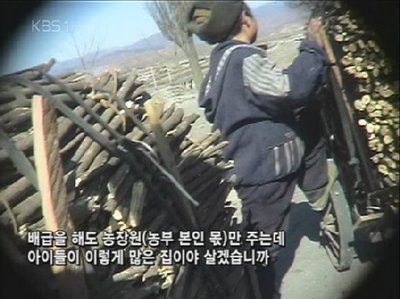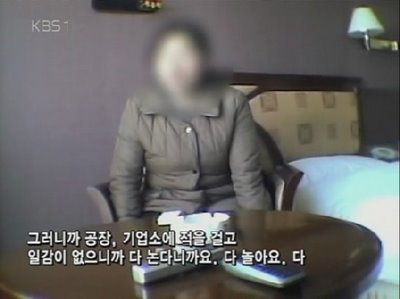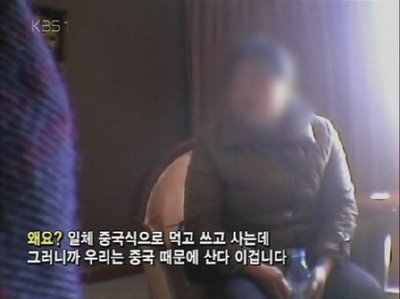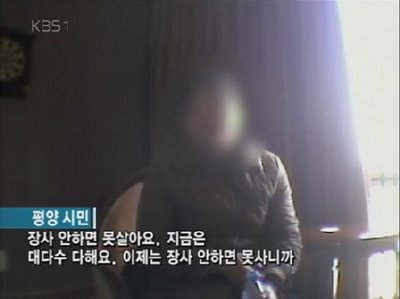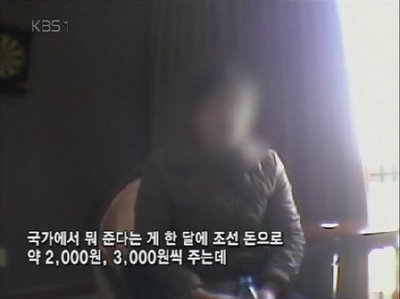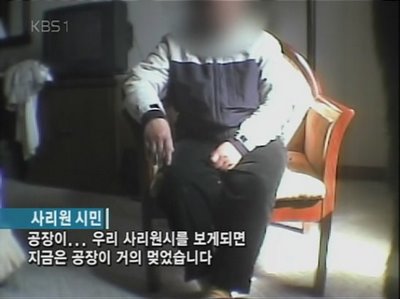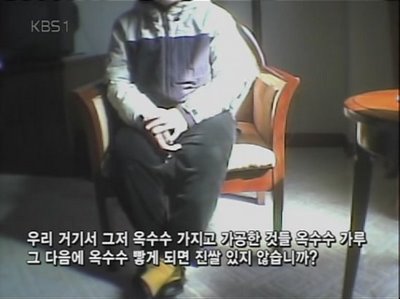The big northern electoral district
| Back in the bad old days when the Soviet Union was happy to use the influence that Finns did not deny them in Finnish domestic policies (that was one facet of Finlandization), there was a term "great eastern electoral district" which of course alluded to the Soviet influence and wishes in Finnish elections. The classic representation of that state of affairs was a cartoon by Kari Suomalainen of the party congress of the Center Party electing the presidential candidate in 1981. In the picture, all the representatives were reading Pravda, the speaker keeping the paper upside down, except for Johannes Virolainen who was reading the party newspaper Suomenmaa. Virolainen, who was not known to be a Soviet favorite, was elected with an overwhelming majority. In the local elections to be held tomorrow on May 31 in the Republic of Korea, DPRK has not quite attained the position of the big northern electoral district, except that the positions its media have expressed must have had nothing but an adverse effect except for among the jucheist vanguard. (It should be noted that there have been attempts for the big northern electoral district effect by ROK politicians and parties of different persuasions before, like the "Northern Wind" affair or the campaineering before the last presidential election that choosing Lee Hoi-chang would bring war and mayhem to the peninsula.) Kyunghyang Sinmun tells further that the southern representatives in the "South-North Student Conference for the Realization of the June 15 Declaration" in Kumgangsan on May 10-11 were told by the northern side that they should vote OOP. They [DPRK] strongly requested (or demanded, yoch'ông) that the students should vote for OOP. The northern representatives said that "GNP which is close to USA must not win. GNP can be beaten by voting OOP. If you vote Democratic Labor Party (DLP) it can become a meaningless vote ("dead vote" sap'yo), so vote OOP even if you're a DLP member."Looking at the prospects of the OOP success in tomorrow's election, the southern electorate is ready to vote for "war" and "national destruction." DPRK support for OOP cannot be but an additional piece of "frozen shit in the sleigh runner" as the people in my father's home region say about people and things which hinder things to happen. Presenting the views of the ROK jucheists on the ROK elections does not give a balanced picture, but when has blogging been about that. For the first, the group perhaps the most immersed in the joys of jucheism, the Southern Chapter of the Pan-National Student Union for the National Unification (조국통일범민족청년학생련합 남측본부), tells that United States is behind the knife attack on Park Geun-hye, the head of GNP. (It cannot but be, because behind GNP is the US of A.) Our brave unificationists compare this to what happened in Ukraine, where the poisoning of Yushchenko was a result of a similar self-inflicted scheme! The Southern Chapter also has a fax from the Northern Chapter of the organization: [...]How interesting by the way that DPRK writes the elections in ROK in quotation marks: 《지방선거》, 《선거》, 《대선》; they do seem to mind about parties and elections of political organs which for them are not representative of something. Categories at del.icio.us/hunjang: Koreanpolitics ∙ DPRK ∙ Korea-Finland |





